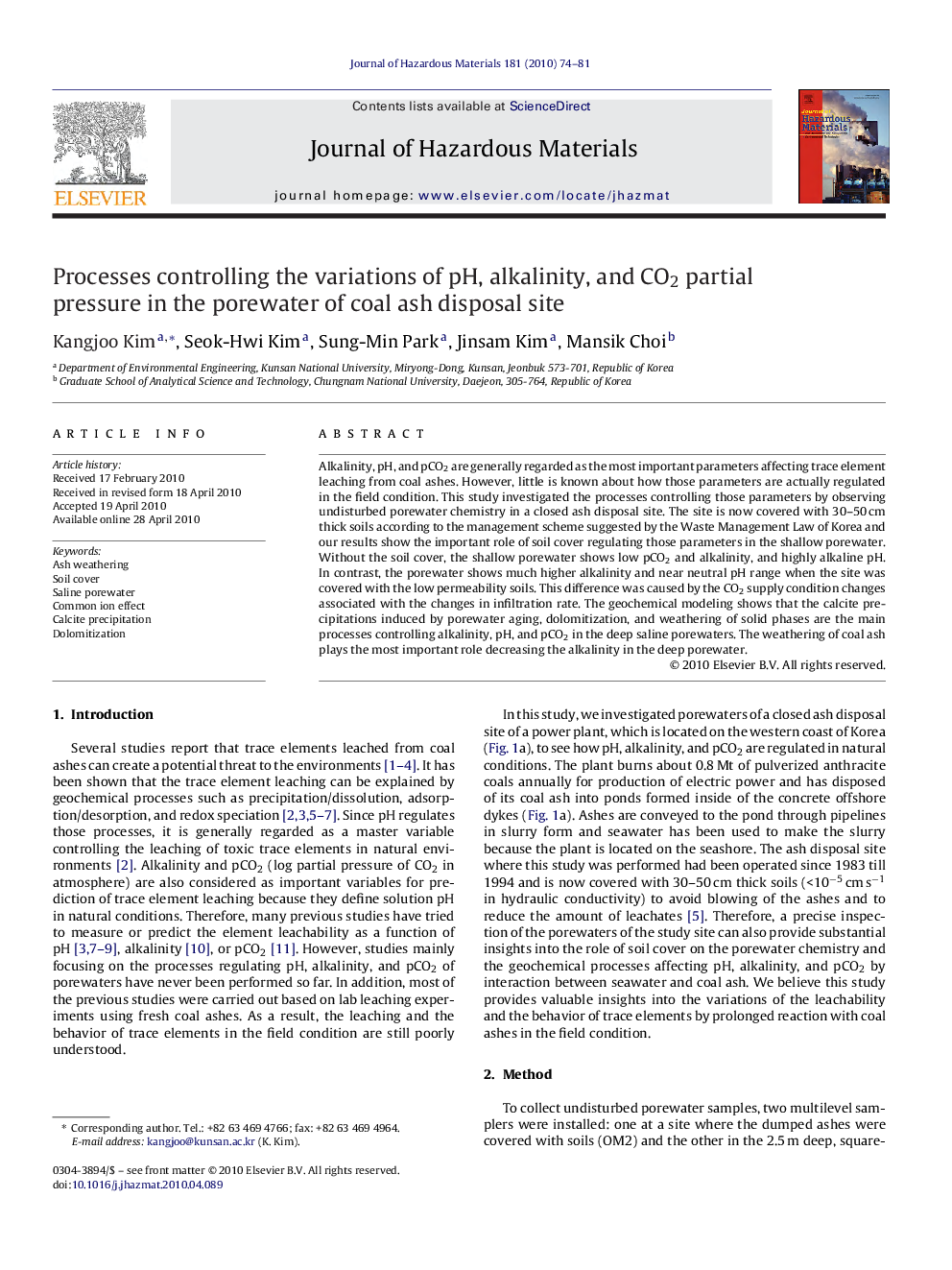| Article ID | Journal | Published Year | Pages | File Type |
|---|---|---|---|---|
| 579936 | Journal of Hazardous Materials | 2010 | 8 Pages |
Abstract
Alkalinity, pH, and pCO2 are generally regarded as the most important parameters affecting trace element leaching from coal ashes. However, little is known about how those parameters are actually regulated in the field condition. This study investigated the processes controlling those parameters by observing undisturbed porewater chemistry in a closed ash disposal site. The site is now covered with 30-50Â cm thick soils according to the management scheme suggested by the Waste Management Law of Korea and our results show the important role of soil cover regulating those parameters in the shallow porewater. Without the soil cover, the shallow porewater shows low pCO2 and alkalinity, and highly alkaline pH. In contrast, the porewater shows much higher alkalinity and near neutral pH range when the site was covered with the low permeability soils. This difference was caused by the CO2 supply condition changes associated with the changes in infiltration rate. The geochemical modeling shows that the calcite precipitations induced by porewater aging, dolomitization, and weathering of solid phases are the main processes controlling alkalinity, pH, and pCO2 in the deep saline porewaters. The weathering of coal ash plays the most important role decreasing the alkalinity in the deep porewater.
Related Topics
Physical Sciences and Engineering
Chemical Engineering
Chemical Health and Safety
Authors
Kangjoo Kim, Seok-Hwi Kim, Sung-Min Park, Jinsam Kim, Mansik Choi,
